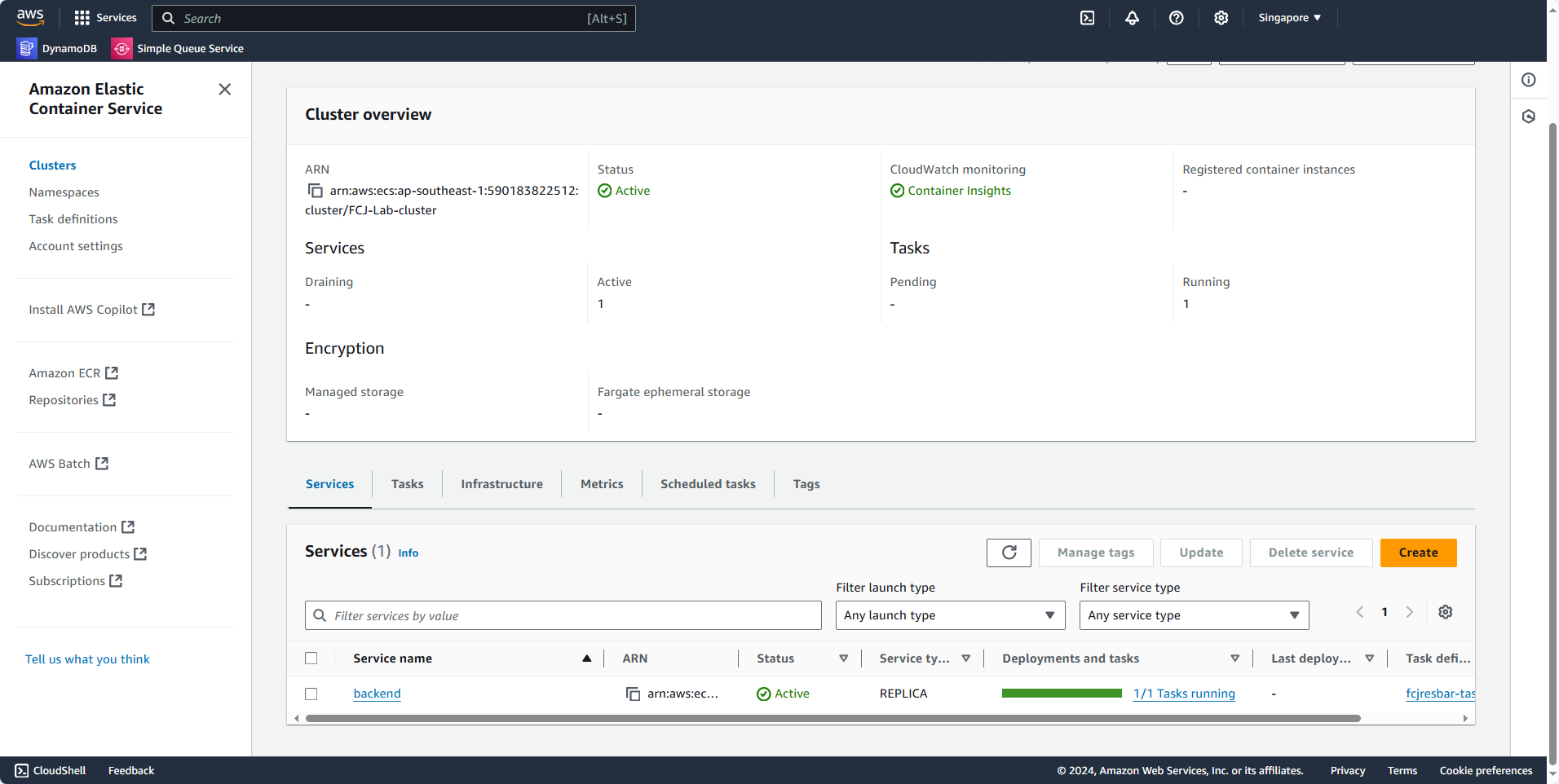Blue/Green Deployment and Service Scaling with Backend
Create backend service
Return to the ECS console
- Select Cluster
- Choose the cluster FCJ-Lab-cluster that we created in the previous section
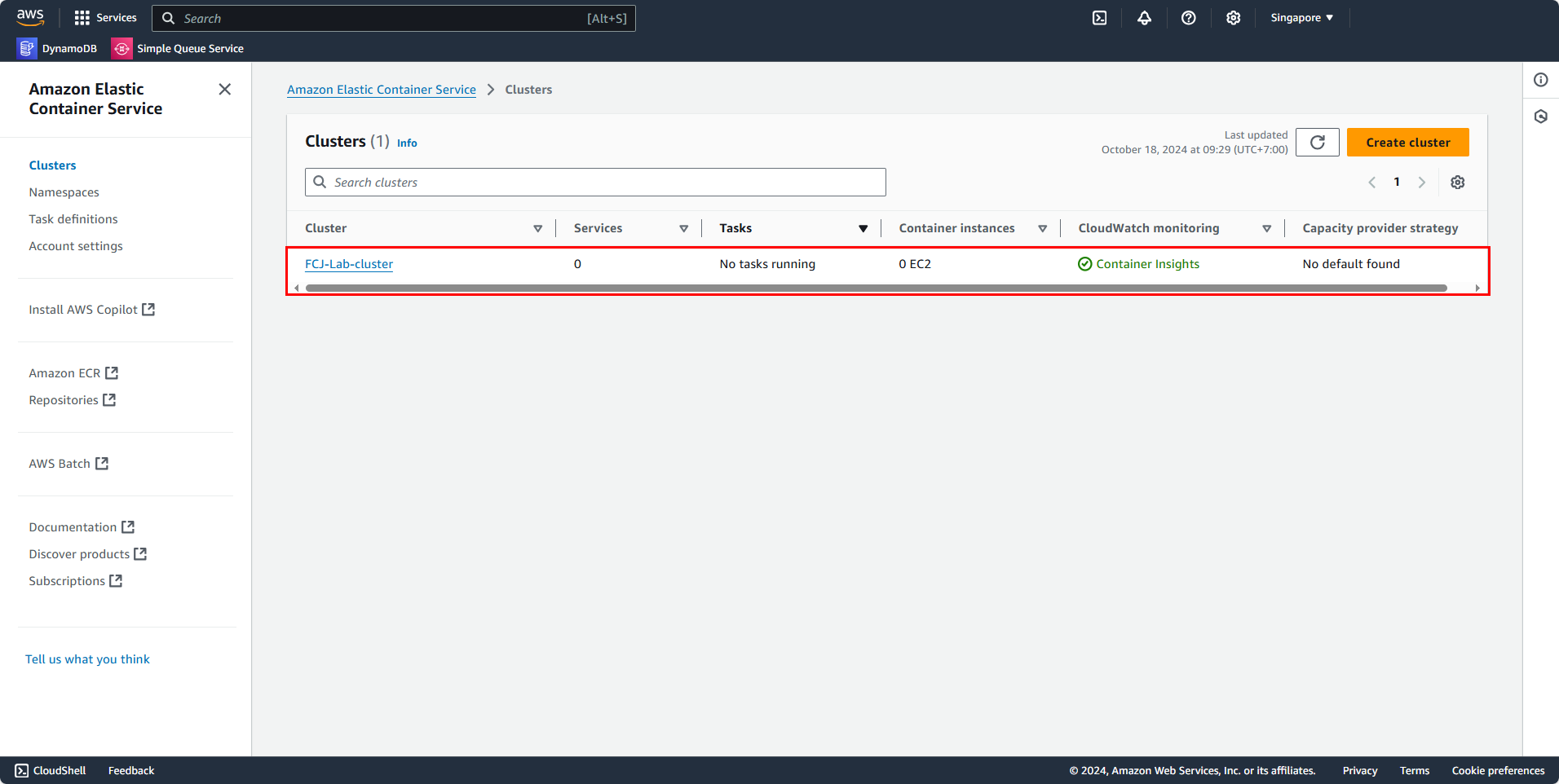
Scroll down to the bottom, in the Services section, click Create
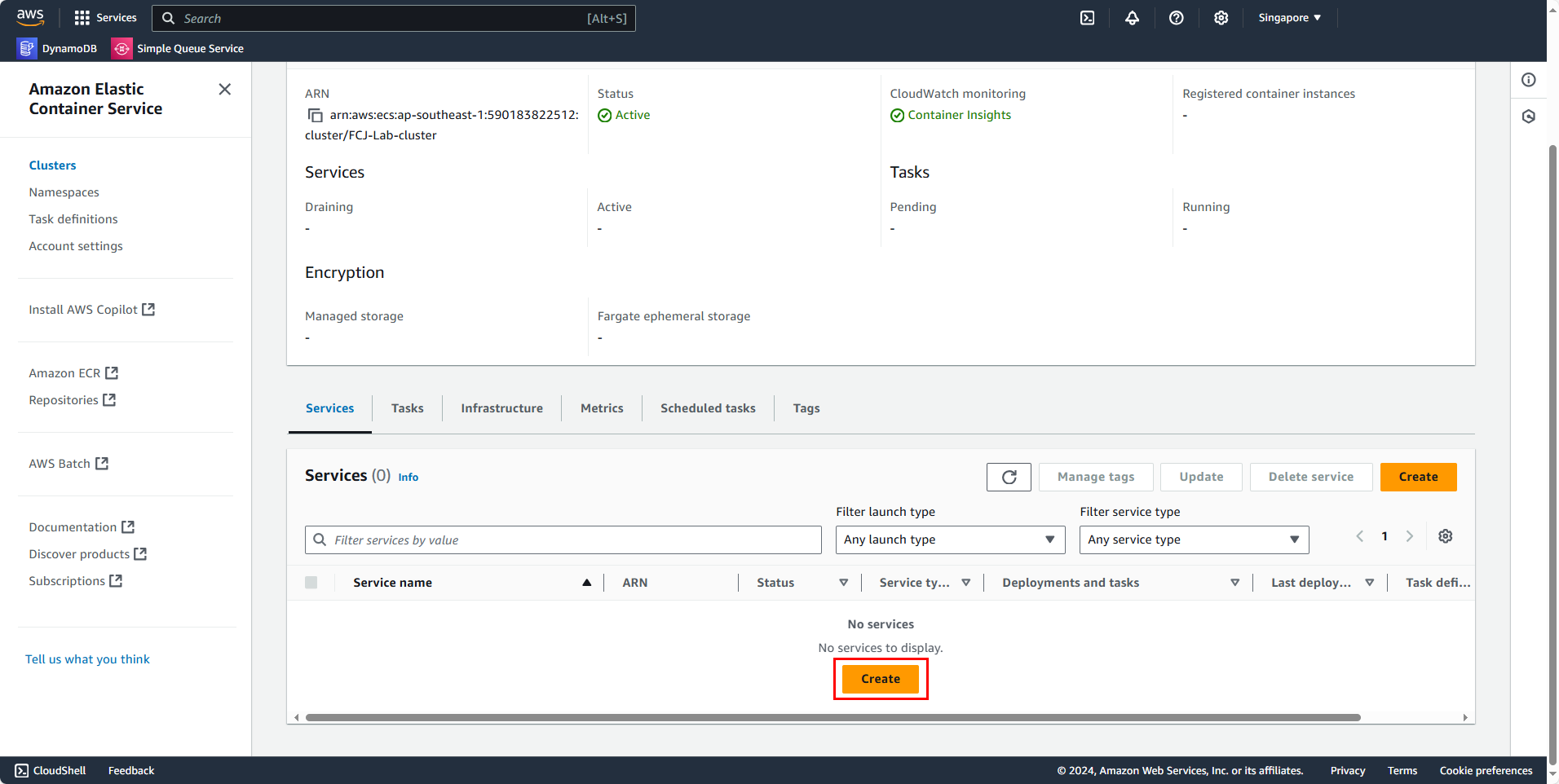
ECS Service Environment
The Cluster will be automatically selected. In the Compute option section, we only need to select the Launch type; the remaining configurations will be added by default.
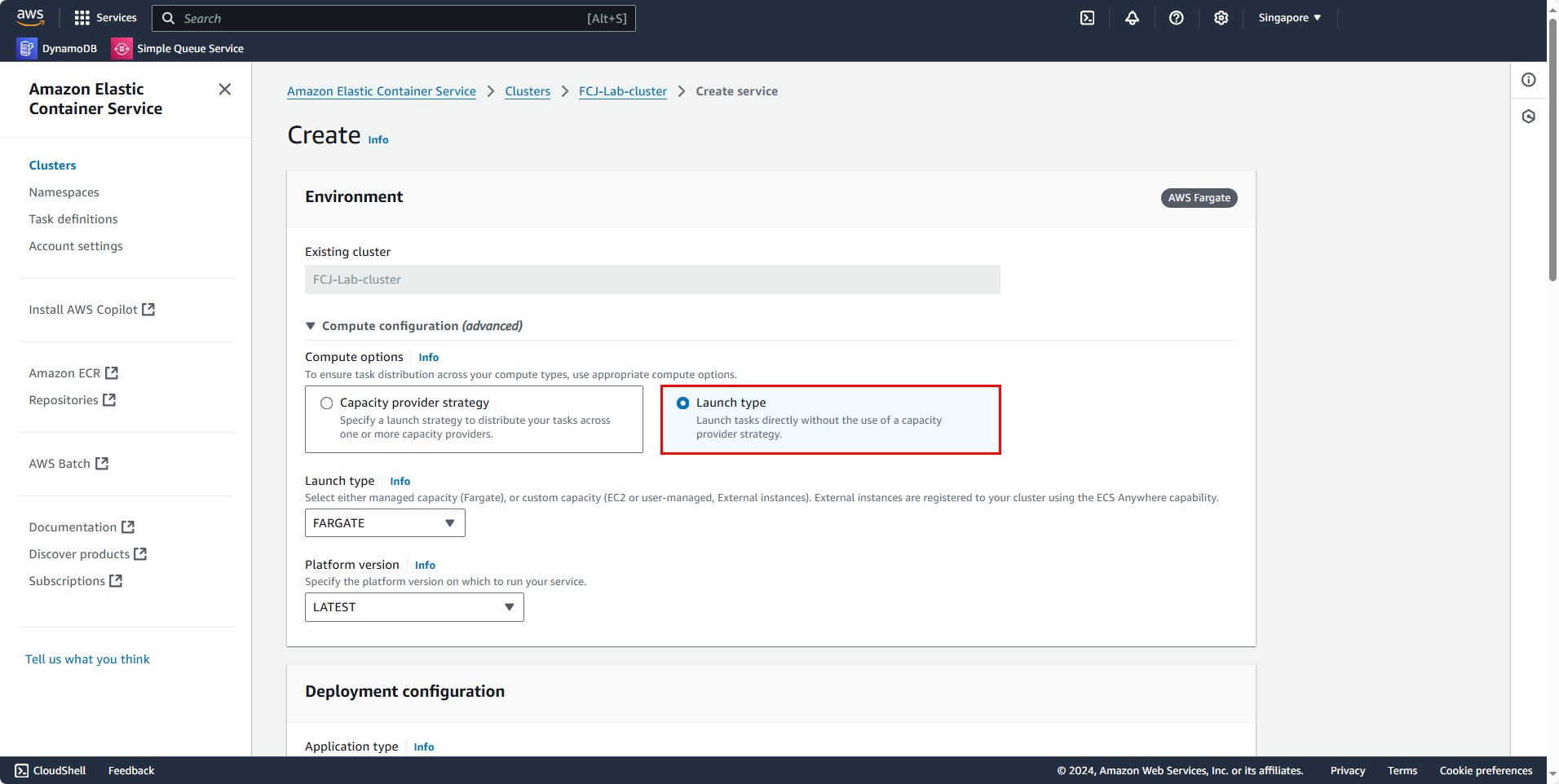
Deployment configuration
In this section, we will configure the deployment:
- Application type: select Service
- Family: select
fcjresbar-task-be, choose the Revision labeled LATEST. - Name:
backend - Service type and Desired tasks leave as default
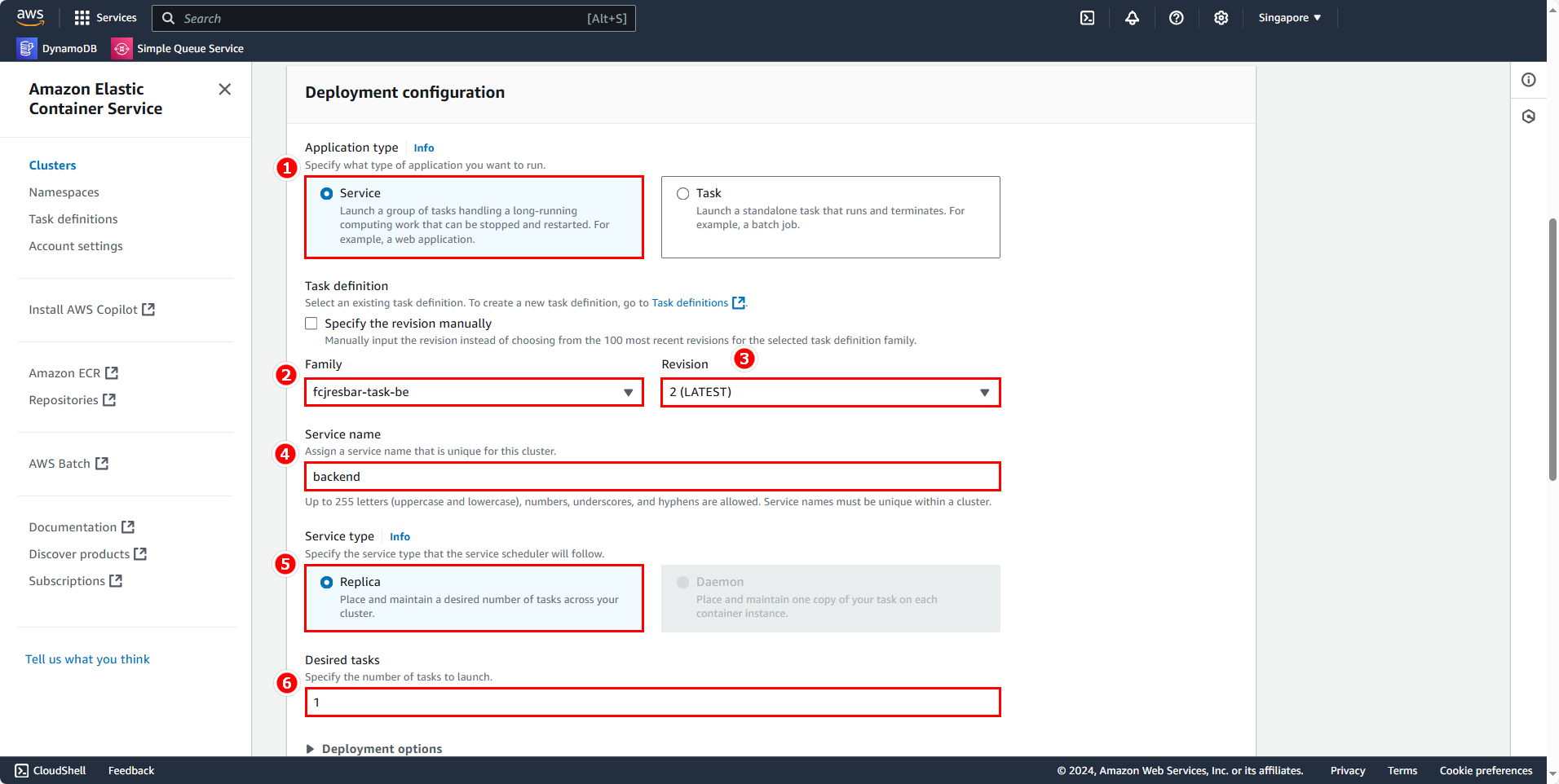
In the deployment options section:
- Deployment type: select Blue/green deployment (powered by AWS CodeDeploy)
- Deployment configuration: select CodeDeployDefault.ECSCanary10Percent5Minutes
- Service role for CodeDeploy: select the role that we created in the preparation section
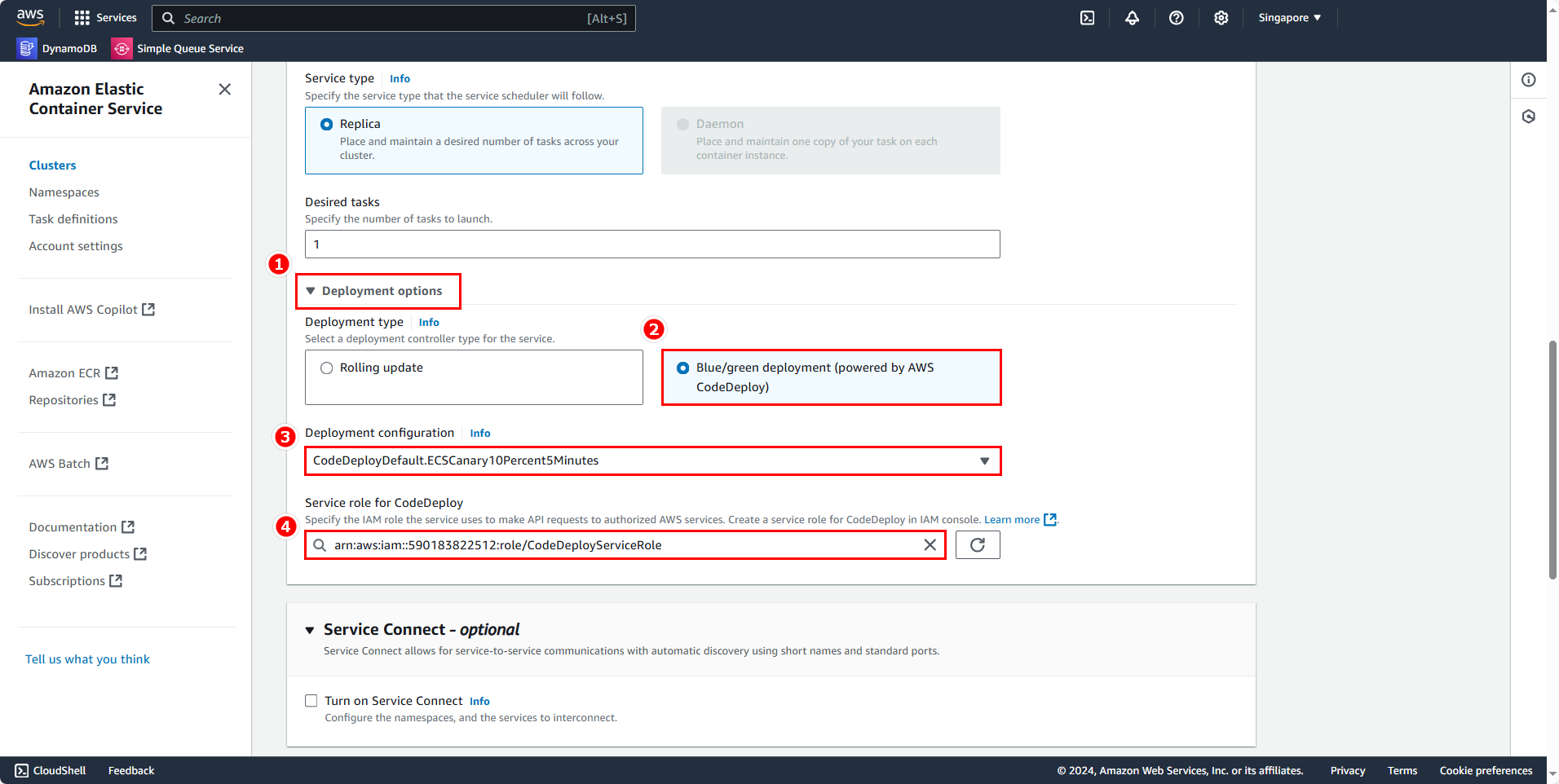
Service discovery
This section is important; to allow the Frontend Service and Backend Service to communicate, we must configure Service discovery for the Backend Service with the namespace and service created in section 4 earlier.
- Select Use service discovery
- Select Select an existing namespace, Select namespace fcjresbar.internal that we created earlier
- Select Select an existing service discovery service, Select service backend
- Leave the remaining configurations as default
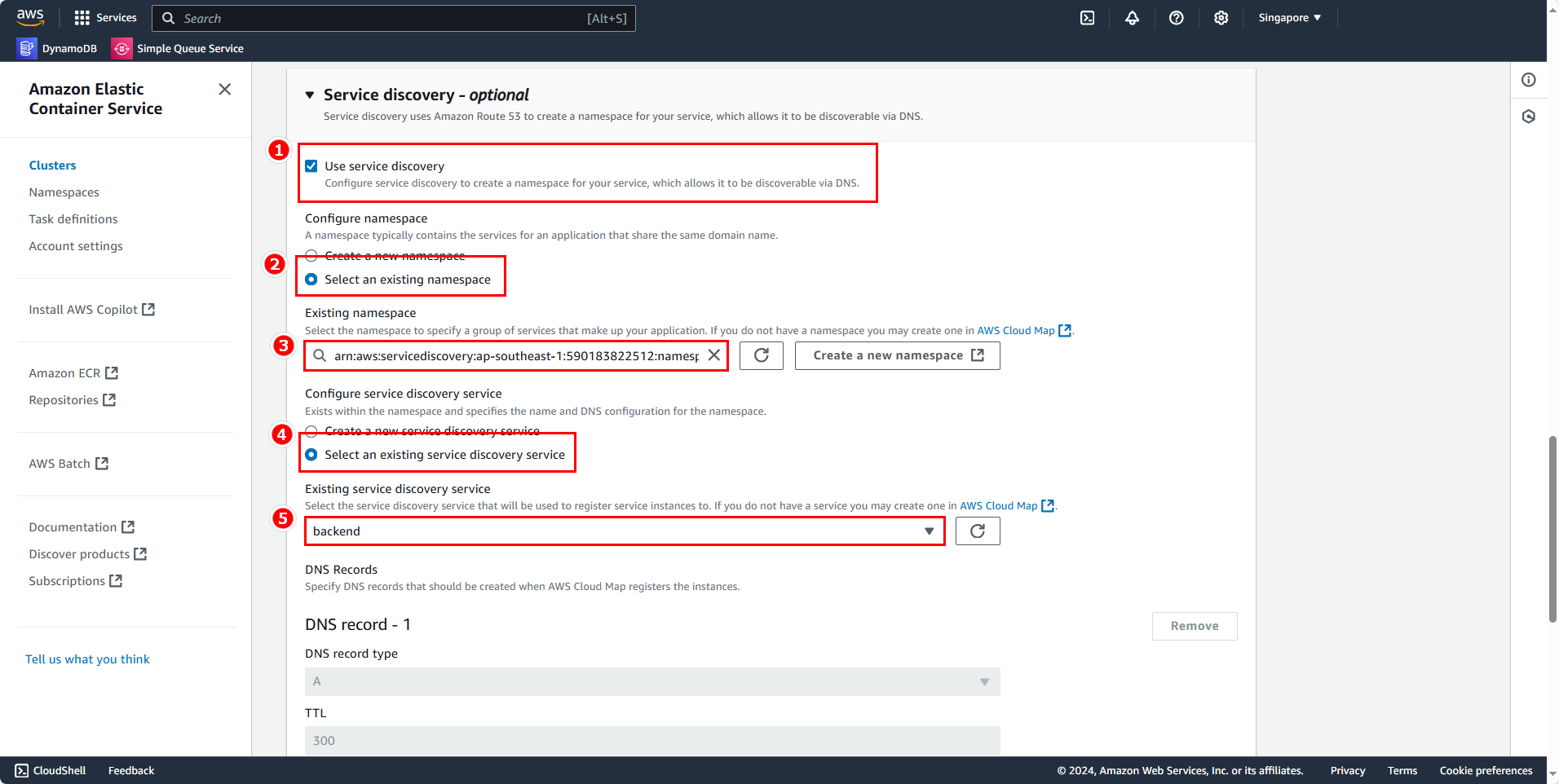
Networking
Now, we will let this Service know which network and subnet it should be placed in.
- VPC: select the VPC that we created earlier
- Subnet: choose the private subnet (FCJ-Lab-subnet-private4) that we created in the preparation section
- Security group: select FCJ-Lab-sg-private.
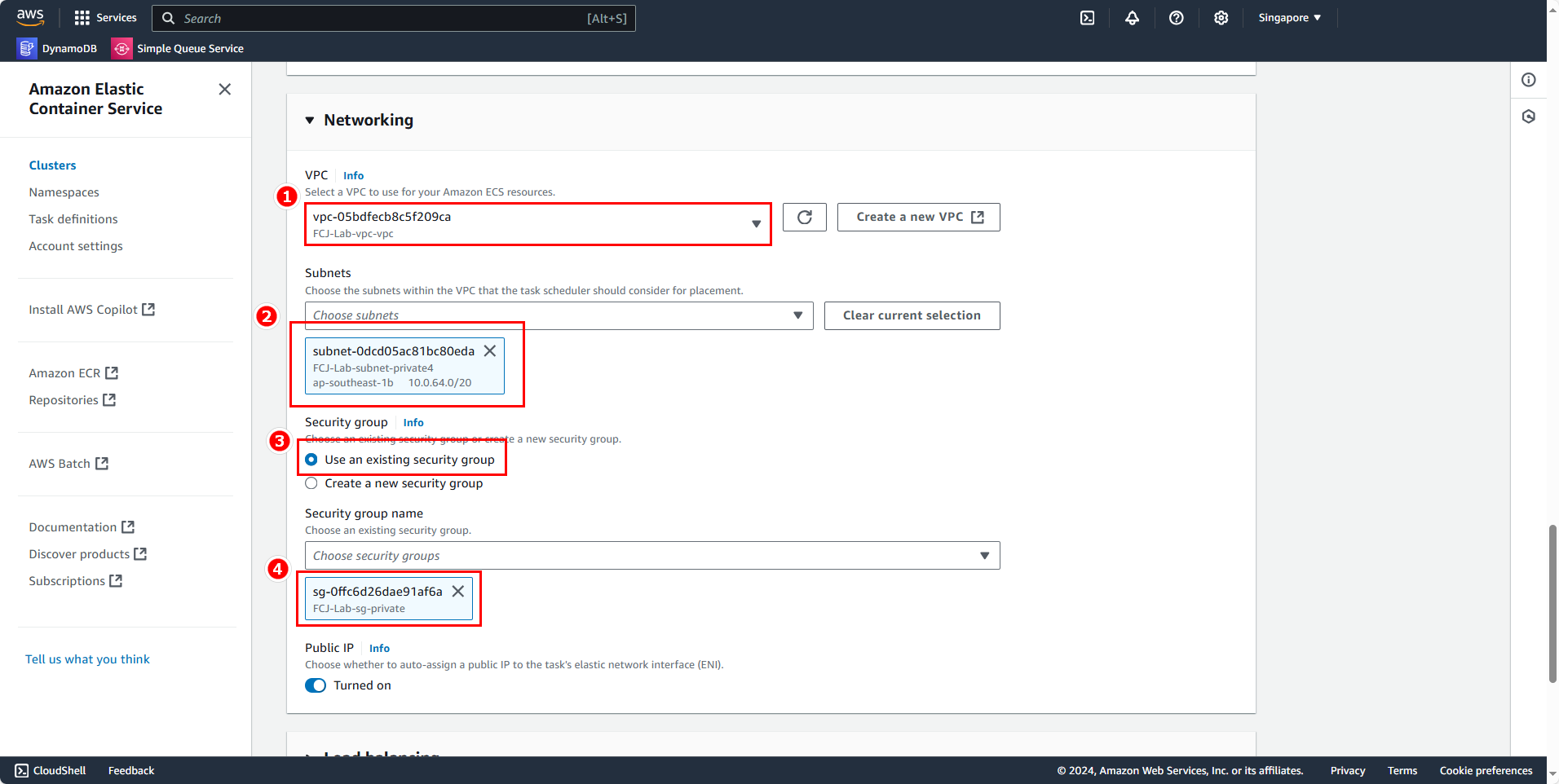
Public IP should be disabled because the traffic is routed to the Service through the Load Balancer.
Load balancing
In reality, we do not need to configure Load balancing for the backend service, as for testing, I will need to use a private network or VPN. However, in this tutorial, I will configure Load balancing, opening 2 listeners for production and testing so that developers/testers can use them for feature testing.
First, configure some information:
- Load balancing type: select Application Load Balancer
- Container: backend 5000:5000 (the port here will be the host and container port)
- Select Use an existing load balancer
- Select FCJ-Lab-alb load balancer
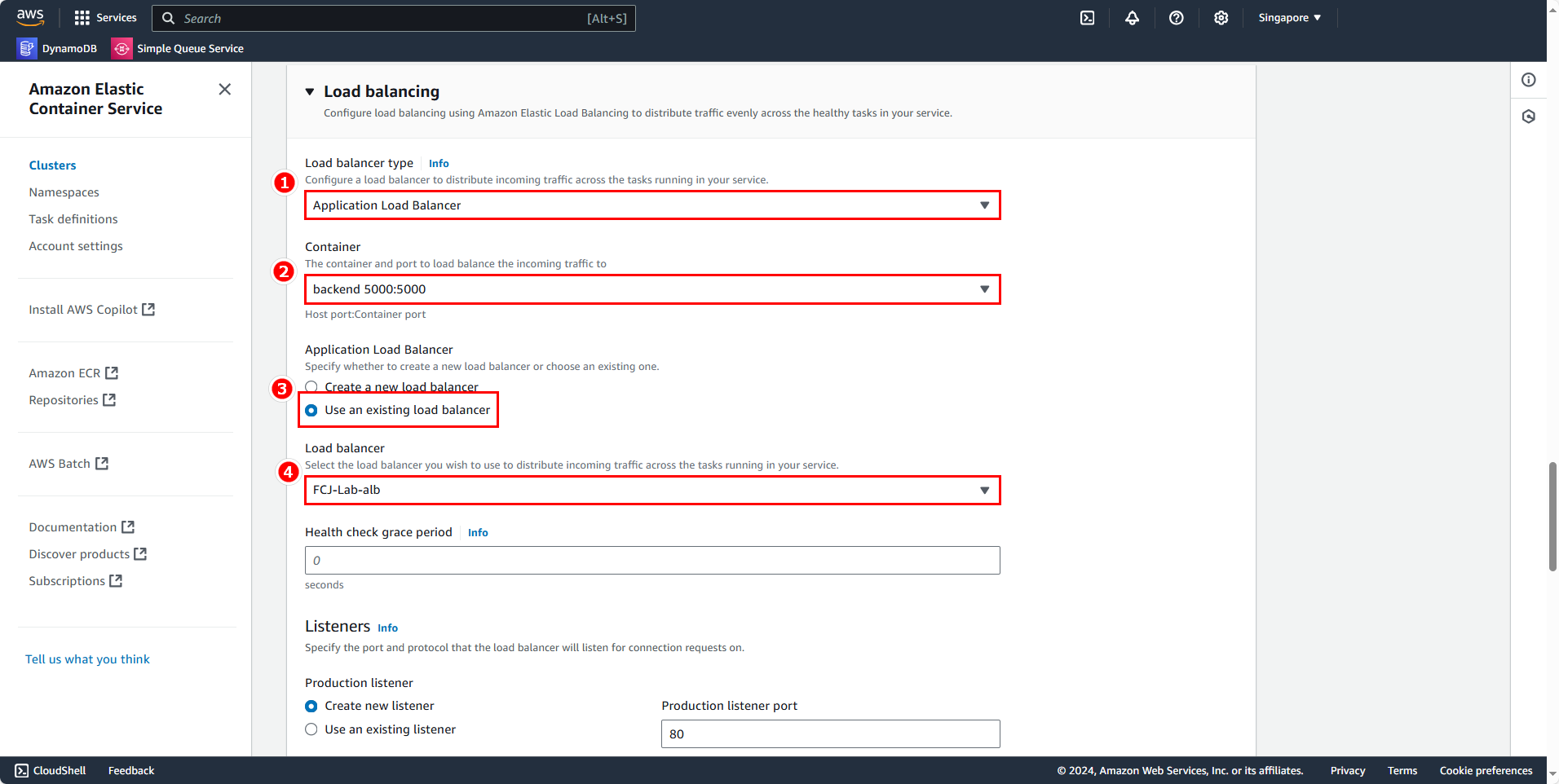
In the listener section, we will create two listeners with the following information:
- Production listener: port 5000, protocol HTTP
- Test listener: port 8080, protocol HTTP
The target group will automatically have the following parameters as shown in the image
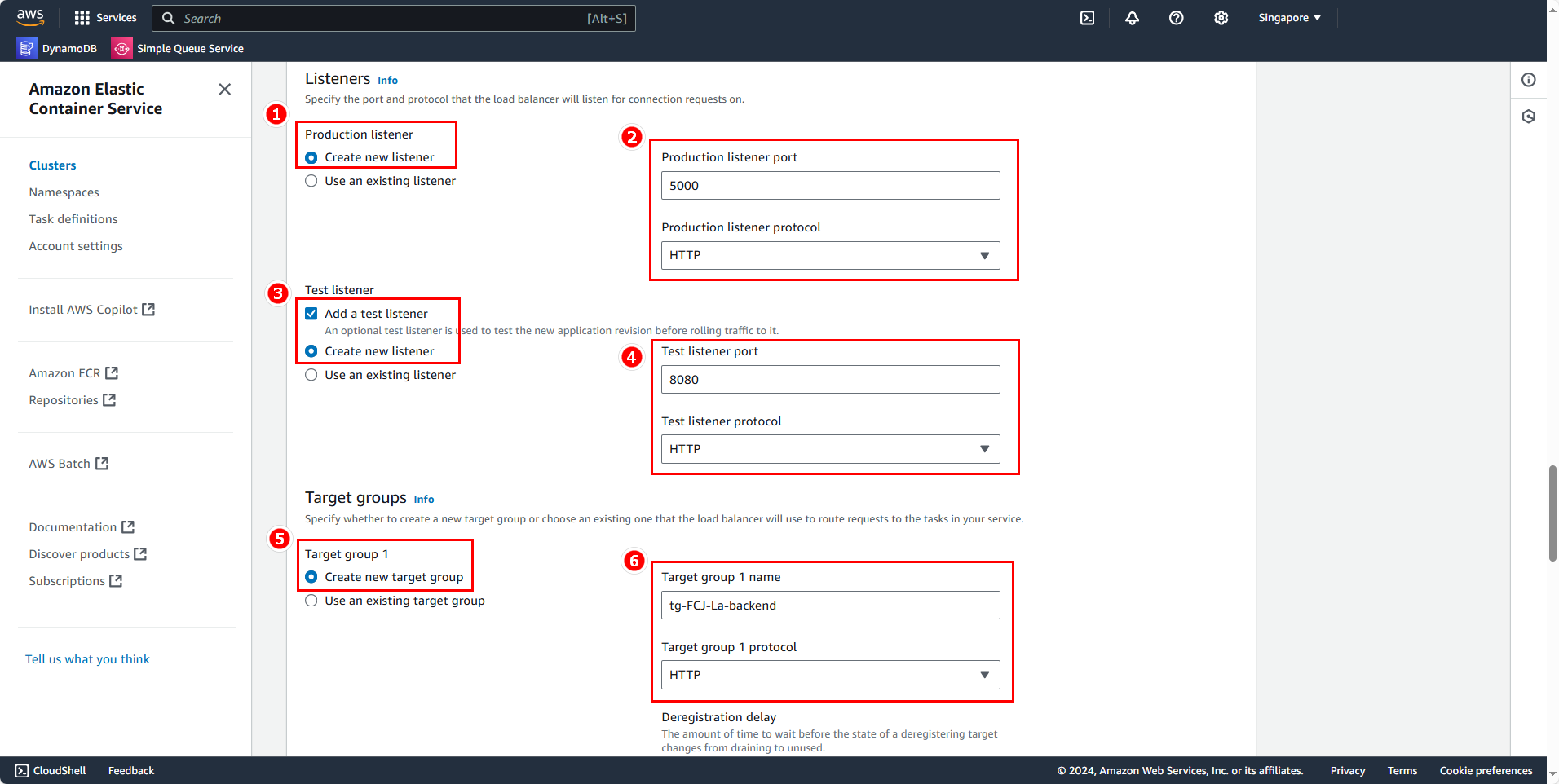
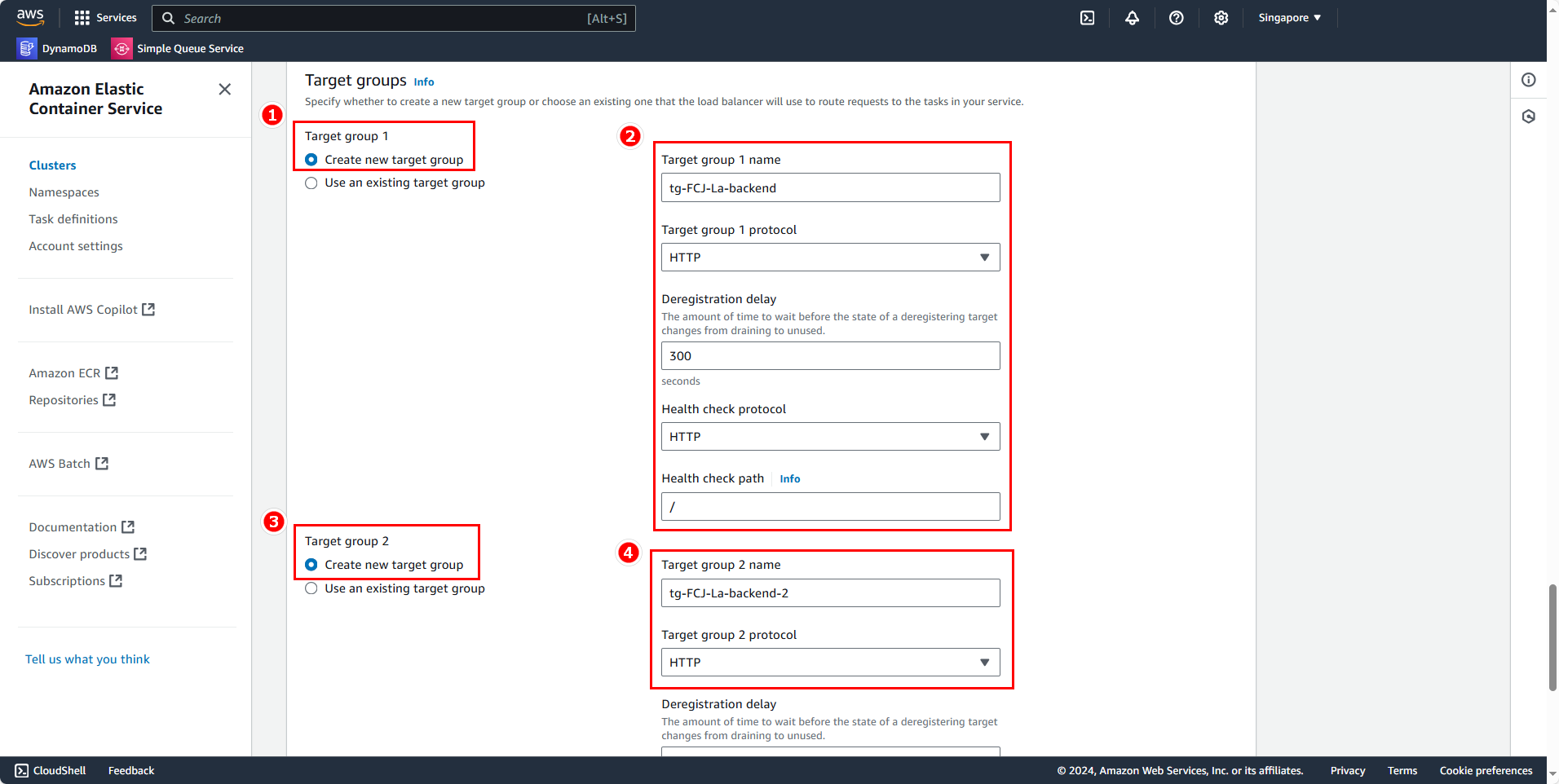
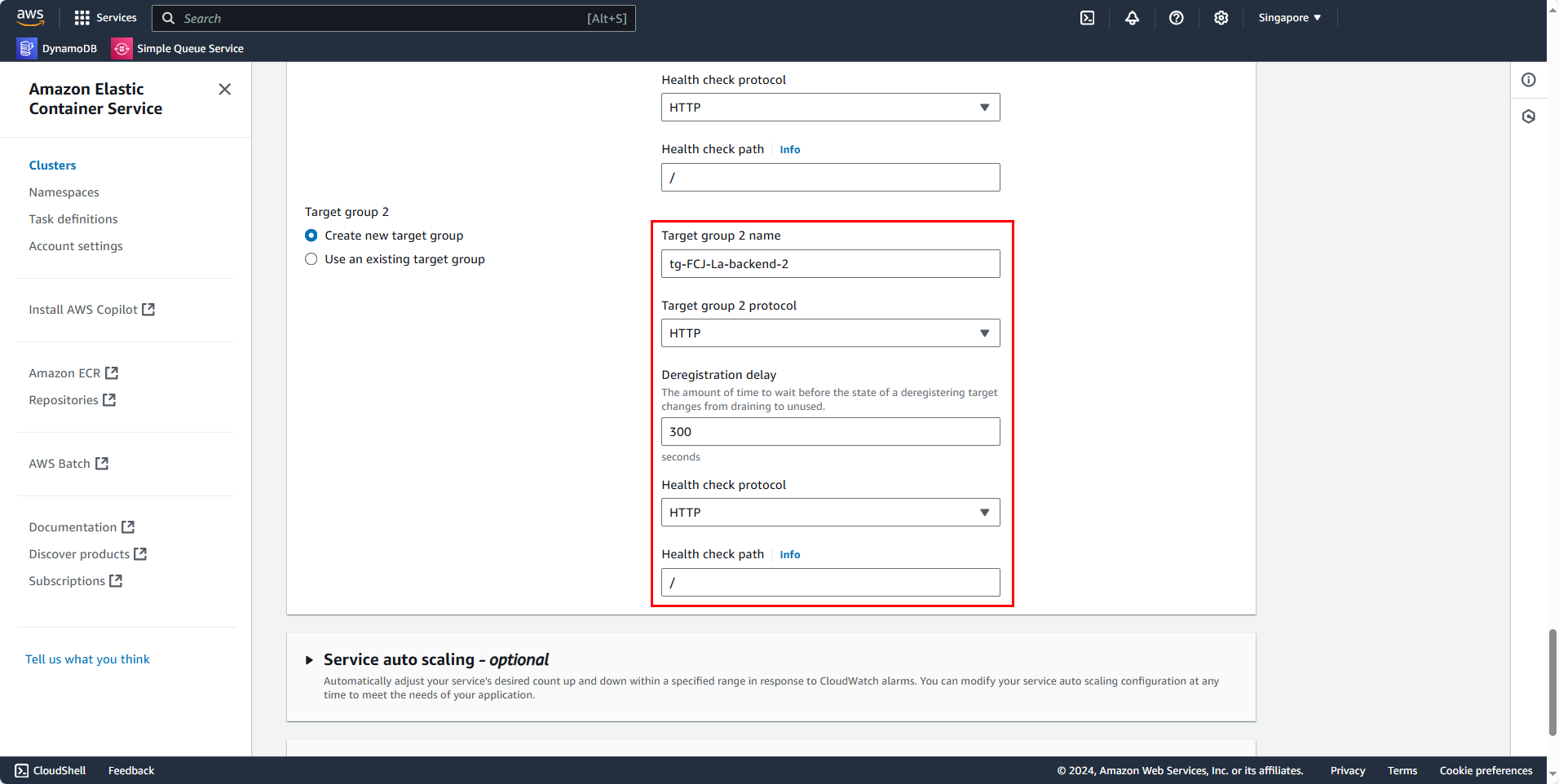
Service auto scaling
Giờ thì mình sẽ cấu hình scaling cho container
- Minimun: 1
- Maximun: 2
- Scaling policy type: Target tracking
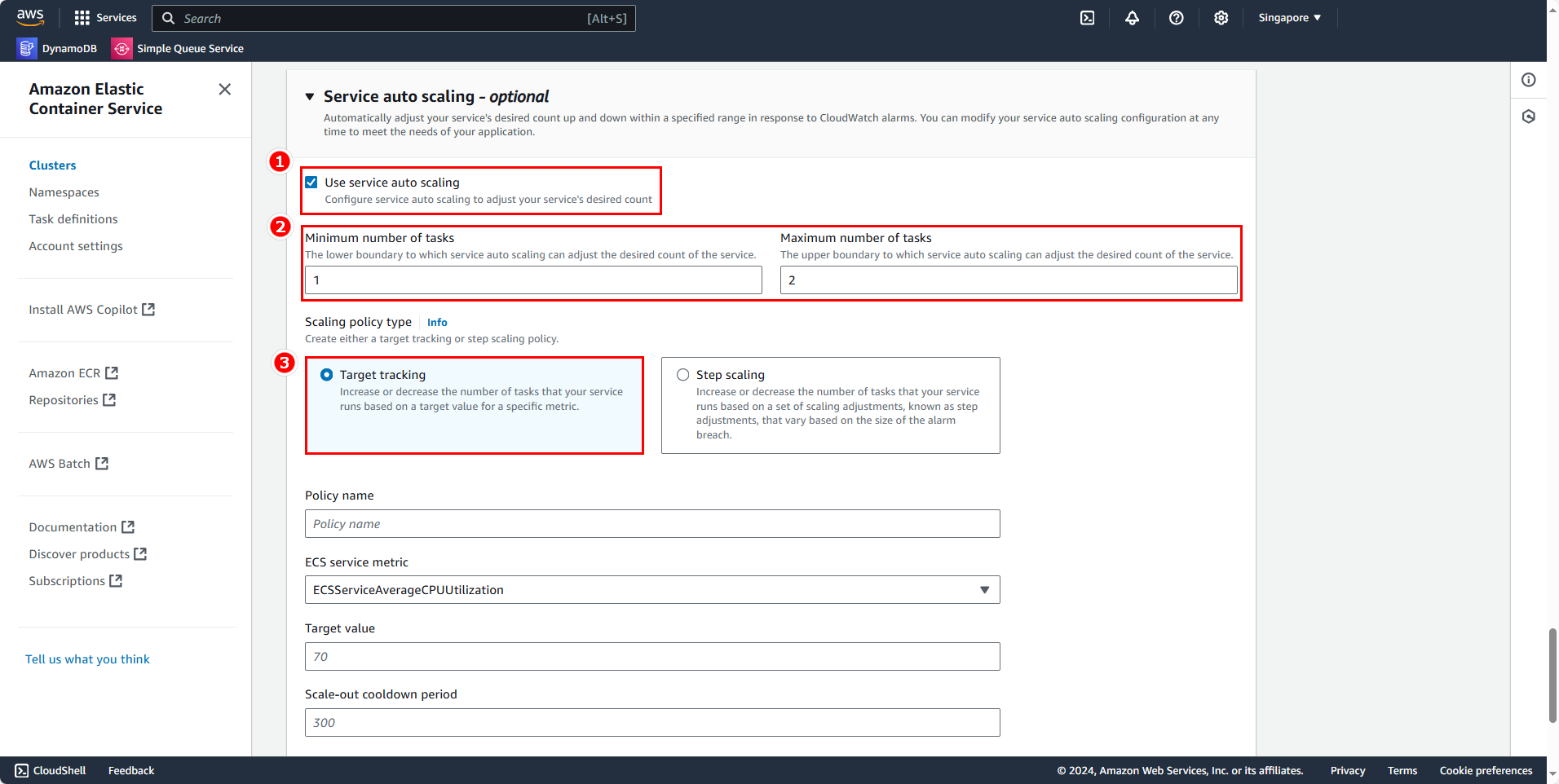
Now, I will configure scaling for the container.
- Name:
ScaleAtThreshold75Percent - ECS service metric: ECSServiceAverageCPUUtilization
- Target value: 75
- Scale-out cooldown period: 120
- Scale-in cooldown period: 120
- Click Create to create it
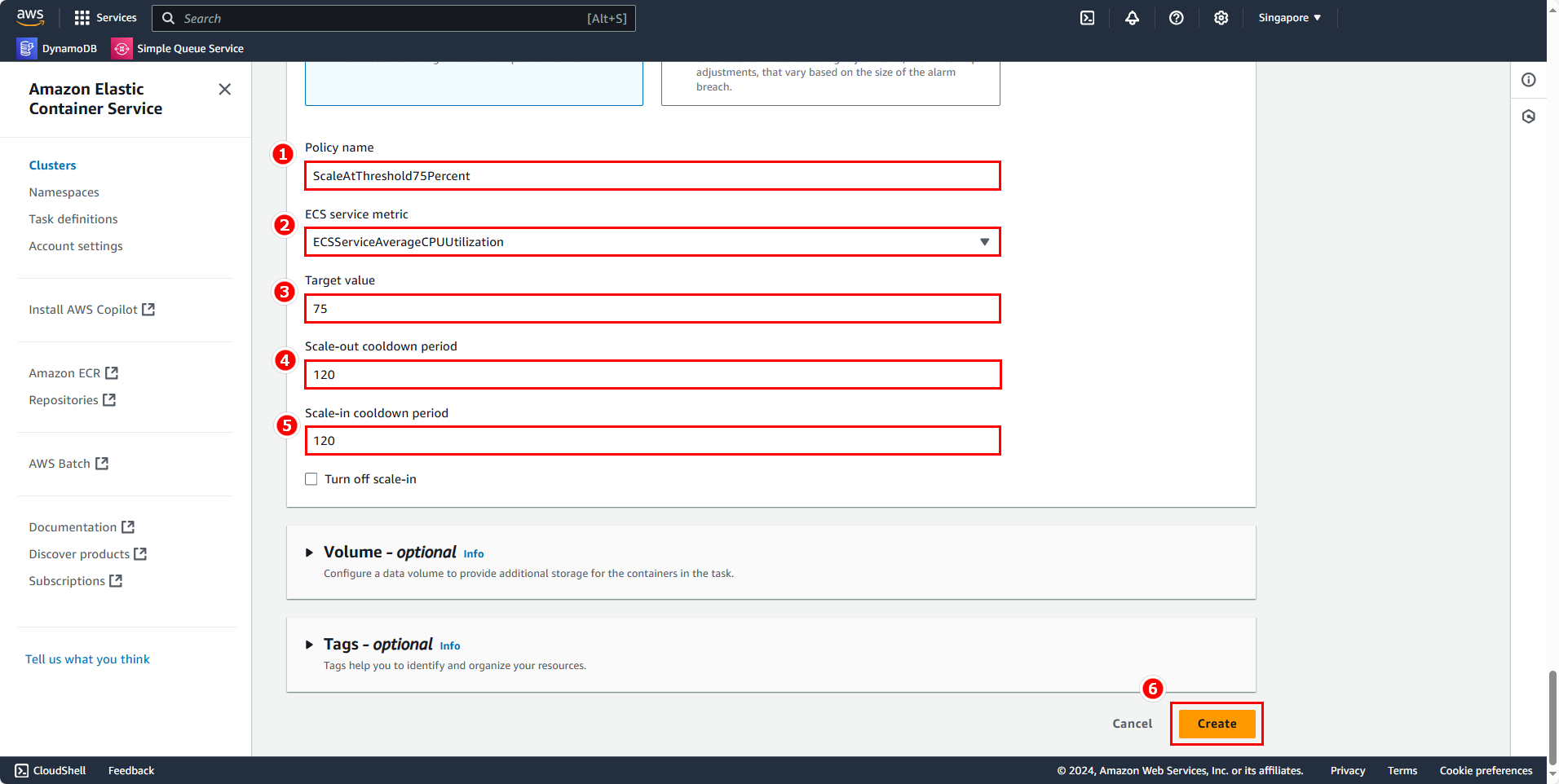
Wait a moment, and the service will be created.
